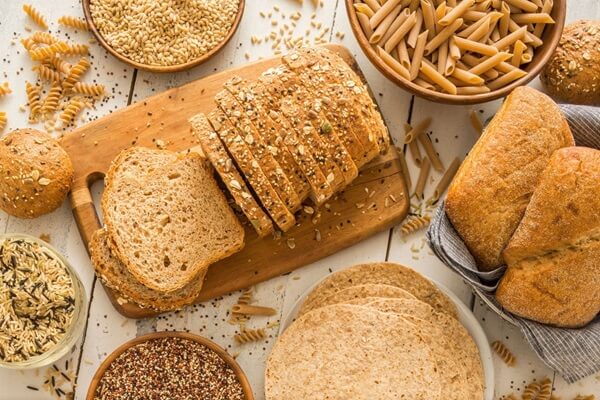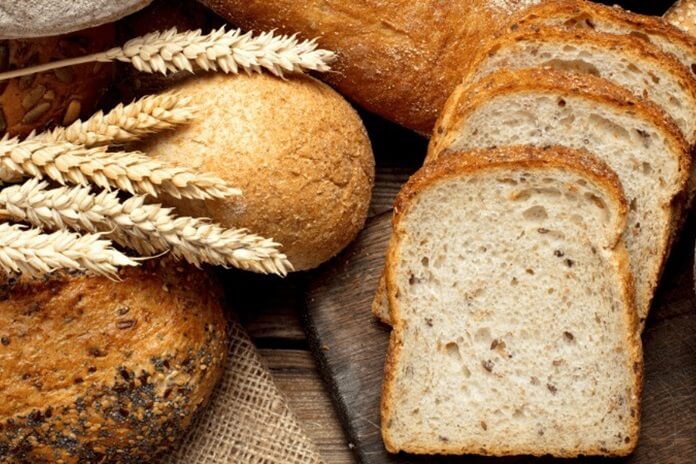The best part of National Homemade Bread Day might be how it engages all your senses: the comforting, sweet smell that fills the kitchen, the sight of steam rising from the loaf, the warmth and taste of home in every bite. Celebrate by baking on November 17 and enjoy the bread with your friends and family.
History of National Homemade Bread Day
The origins of National Homemade Bread Day are unclear, but the bread itself has a long history intertwined with humanity. Bread has been a vital part of diets and cultures across the globe, appearing in various forms everywhere.
Before bread was developed, grains and cereals were a crucial part of the human diet. Bread is believed to have been introduced around 10000 years ago, during the Neolithic period in Europe. Even back then, some loaves were made using a piece of the previous day’s bread as a ‘starter,’ similar to sourdough.
Moreover, in 79 AD, the catastrophic eruption of Mount Vesuvius preserved Pimpeii’s ovens, allowing archaeologists to uncover them centuries later. They discovered that the people of Pompeii had access to bread baked in at least 33 different bakeries.

Likewise, the invention of the bread maker has made baking much easier, so now everyone can enjoy homemade bread which is often better than store-bought.
Homemade bread is usually healthier, with more fiber and less salt and additives than commercial versions. Plus, the recipe can be customized to suit personal tastes by adding grains, spices, or other ingredients. Homemade bread, in any form, is delicious and deserves to be celebrated on this day!
| 2650 BC (The art of bread) | Archaeologists found bas-reliefs, dating at least this far back, of Egyptians harvesting grain, likely for bread. |
| 79 AD (A volcano preserved Pompeii’s ovens) | Mount Vesuvius erupted, preserving both the Roman city of Pompeii, which had 33 bakeries, and its bakery of Modestus. |
| 1300 AD (Bread made an appearance) | The writings of Indo-Persian poet Amir Kushrau were recorded history’s first reference to bread. |
| 1928 (The mechanical age) | Otto Frederick Rohwedder invented a machine to slice bread. |
| 1952 (“It’s the greatest thing since sliced bread” ) | Comedian Red Skelton apparently coined this phrase during a newspaper interview. |
Five Interesting Facts About Bread
- Oldest Prepared Food: Bread is one of the oldest prepared foods in the world. The earliest evidence of bread-making dates back to around 14,000 years ago in the northeastern part of the Jordan Valley, long before the advent of agriculture.
- Egyptian Innovation: The ancient Egyptians are credited with inventing the first leavened bread around 4,000 years ago. They discovered that by letting dough sit out, natural yeast in the air would cause it to rise, resulting in a lighter, more palatable loaf.
- Bread and Religion: Bread has significant religious symbolism in many cultures. In Christianity, for example, bread represents the body of Christ during the Eucharist. In Judaism, bread plays a central role in rituals like Shabbat, where challah bread is blessed and shared.
- A Staple with Variety: There are thousands of different types of bread around the world, each with unique ingredients, preparation methods, and cultural significance. From French baguettes to Indian naan, Mexican tortillas to German pumpernickel, bread’s diversity is vast and reflects the culinary traditions of different regions.
- Bread and Economics: The phrase “breadwinner” stems from the importance of bread in the daily diet, signifying the person who provides the primary means of support for a household. Historically, bread has also been used as a measure of economic stability; in fact, in some places, the price of bread was strictly regulated to ensure it remained affordable for the general population.
Conclusion
National Homemade Bread Day is more than just a celebration of a staple food; it’s a sensory experience and a tribute to one of humanity’s oldest culinary traditions. From its ancient origins in the Neolithic period to the modern conveniences of bread makers, the simple act of baking bread connects us to our past and enriches our present.
Whether enjoyed alone or shared with loved ones, homemade bread brings warmth, comfort, and a sense of accomplishment. As you bake and savor your homemade bread on November 17, you’re not just making food—you’re participating in a timeless tradition that has nourished cultures and families for millennia.
Frequently Ask Question
1. What is National Homemade Bread Day?
National Homemade Bread Day is a day dedicated to celebrating the art and tradition of baking homemade bread. Observed on November 17, it encourages people to bake and enjoy fresh bread with their loved ones.
2. Why should I bake bread on National Homemade Bread Day?
Baking bread on this day is a way to engage all your senses—enjoy the comforting aroma, the warmth, and the taste of freshly baked bread. Homemade bread is often healthier and can be customized to your taste preferences, making it a rewarding and personal experience.
3. When did bread first become part of the human diet?
Bread is believed to have been introduced around 10,000 years ago during the Neolithic period in Europe. However, the earliest evidence of bread-making dates back to around 14,000 years ago in the Jordan Valley, long before the advent of agriculture.
4. How did bread become leavened?
The ancient Egyptians are credited with inventing the first leavened bread around 4,000 years ago. They discovered that letting the dough sit out allowed natural yeast in the air to cause the dough to rise, resulting in a lighter, more palatable loaf.
You may also like to read, National Bavarian Cream Pie Day – November 27, 2024
